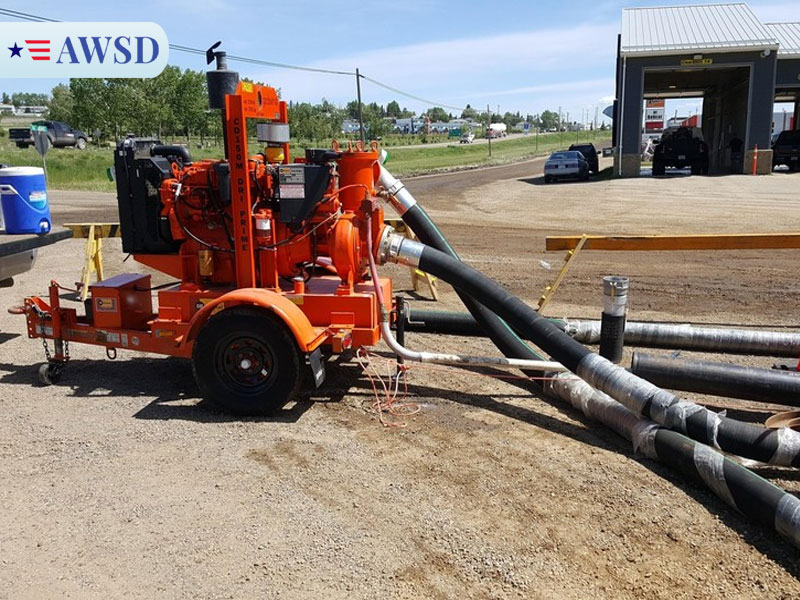
Understanding the Need for Bypass Pumping: When and Why It's Essential
Overview:
Bypass pumping refers to the process of redirecting wastewater flow in a sewer system to an alternative route using temporary pumping equipment. This method is used when there is a need to divert or bypass wastewater flow from the normal sewer system to carry out maintenance, repairs, or construction work.
Some following needs for Bypass Plumbing:
1. Preventing Service Interruptions:
Bypass pumping is essential to avoid service interruptions to households, businesses, and other facilities that rely on the sewer system. By redirecting the wastewater flow, the normal sewer system can be temporarily taken out of service without affecting the daily operations of the community.
2. Maintenance and Inspection:
Regular maintenance of sewer systems is crucial to ensure their proper functioning. Bypass pumping allows maintenance crews to access and inspect the sewer pipes, pumps, and other components without disrupting the wastewater flow.
3. Sewage Backup and Flooding Prevention:
During heavy rainstorms or excessive wastewater flow, the capacity of the sewer system may be exceeded, leading to sewage backups and flooding. Bypass pumping can be used to divert the excess flow to larger-capacity pipes or storage tanks, preventing potential damage and health hazards.
4. Pipe Repair or Replacement:
When pipes in the sewer system are damaged or need to be replaced, bypass pumping is necessary to maintain the flow of wastewater. By redirecting the flow, the damaged section can be isolated and repaired or replaced while minimizing disruption to the overall sewer system.
5. New Construction or Expansion:
In cases where new sewer lines need to be installed or existing ones expanded, bypass pumping is essential to maintain continuous wastewater flow. This allows construction work to proceed while ensuring uninterrupted service to the community.
6. Pumping Station Maintenance or Upgrades:
Bypass pumping is often required when maintenance or upgrades are being carried out on pumping stations that play a crucial role in wastewater transportation. By redirecting the flow to alternate stations or routes, the necessary work can be completed without affecting the overall sewer system.
7. Emergency Situations:
In emergency situations such as pipe collapses, equipment failures, or natural disasters, bypass pumping can be deployed to quickly divert and manage the flow of wastewater. This helps to mitigate the potential impacts and address the situation promptly.
8. Environmental Protection:
Bypass pumping can also be used to protect the environment in certain circumstances. For example, during sewer line repairs, bypass pumping can prevent untreated sewage from entering nearby water bodies or contaminating the soil.
9. Cost Efficiency:
Bypass pumping can offer cost savings compared to completely shutting down a sewer system or building temporary storage facilities. By diverting the flow, the need for costly alternative measures can be minimized, ensuring that the wastewater continues to be managed efficiently.
10. Flexibility and Adaptability:
Bypass pumping provides the flexibility and adaptability needed in situations where sewer system operations need to be altered temporarily. It allows for the rerouting of the flow to meet specific project requirements, ensuring that the necessary work can be carried out effectively.
Conclusion:
Bypass pumping is essential in various situations to ensure continuous wastewater flow, prevent service interruptions, address emergencies, and facilitate maintenance, repairs, and construction in sewer systems. Understanding the need for bypass pumping can help communities, municipalities, and construction companies effectively manage their sewer infrastructure projects.
Nov 24, 2023